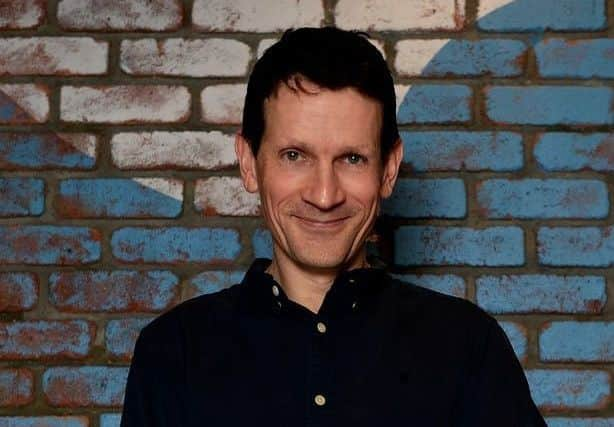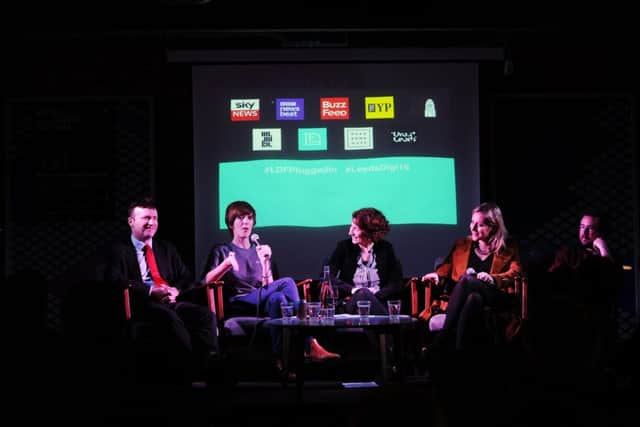Twitter vice president hails ‘dream time’ for North of England’s tech sector


Bruce Daisley, inset, European Vice-President for Twitter, said that innovation within digital industries was migrating out of capital cities and that the relative affordability of Northern areas compared to London was making them more attractive to start-ups.
Speaking to The Yorkshire Post, he added that technology was elongating the working day and stifling creativity in many sectors.
Advertisement
Hide AdAdvertisement
Hide AdMr Daisley, who will speak at an event at marketing firm Journey Further as part of Leeds Digital Festival on April 30, attended York University and has been with Twitter for seven years, having previously been a director with YouTube.


He said: “We are starting to see some real development in Yorkshire.
“Channel 4 in Leeds is going to help the media sector.
“Combined with the fact that London has become so unaffordable, it seems like it is the dream time for the tech sector in the North.
“The critical thing from the conversations that I have had is that people are really starting to ask themselves about the lifestyle that they end up having in London where the average commute time is 75 minutes.
Advertisement
Hide AdAdvertisement
Hide Ad

“People are commuting for longer times to get to tiny houses.
“What we have seen is that, albeit the big firms are stuck to London and the South East and Dublin, the start-up firms and the innovation buzz of people doing clever things – they are migrating out of the cities.”
Mr Daisley hosts one of the UK’s top businesses podcasts and this year published The Joy of Work book in which he suggests 30 practical ways to improve the workplace culture.
“The levels of burnout and exhaustion in modern offices are huge,” he said.
Advertisement
Hide AdAdvertisement
Hide Ad“Since email arrived on everybody’s mobile phone, we have silently and without noticing, seen the average workday increase by two hours each day.
“People are working longer and longer and often for very limited benefit. Rather than feeling like the extra two hours a day are allowing us to get more done we are increasingly feeling like we are not getting on top of our inboxes and are behind on things. Exhaustion is the norm really.
“I set about trying to solve that problem at my workplace at Twitter. I wanted to get people back to feeling energised and motivated. I was keen to try and get below what some of these tech bosses were saying and get into the science of it.
“What I found was there was loads of science of it.”
As senior management of one of the world’s tech giants, Mr Daisley concedes that Twitter and the sector is helping contribute to the problem of overwork but says that changing culture is more important than services offered by individual firms.
Advertisement
Hide AdAdvertisement
Hide Ad“Let’s not beat around the bush, technology is responsible for this level of exhaustion,” he said.
“The average twitter users uses it for six or seven minutes a day whereas email can take two hours.
“We have got to have this discussion about technology.
“You don’t have good ideas when you are constantly overwhelmed with the demands upon them.”
Twitter and all social media platforms have found themselves in political hot water in recent years over the spread of so-called Fake News.
Advertisement
Hide AdAdvertisement
Hide AdMr Daisley takes the firm view that Twitter is a platform as opposed to a publisher but said the business was willing to work with Government to better regulate what appears on its feed.
“For me it is unequivocally a platform.
“The argument has evolved a bit.
“Government is taking an interest in these things. We are open to that. We will always cooperate with what the government wants to do.”
He added that he was opposed to measures which would prohibit people from the platform and urged against “simple answers to complicated problems”.
Taking the example of age verification for Twitter, he said that requiring such a thing would “put a velvet rope” around the site and mean young people from less affluent backgrounds, who are unlikely to have passports or driving licences, would be denied access.
“That for me is a very big unintended consequence,” he said.
“We have got to be careful of reductive arguments.”